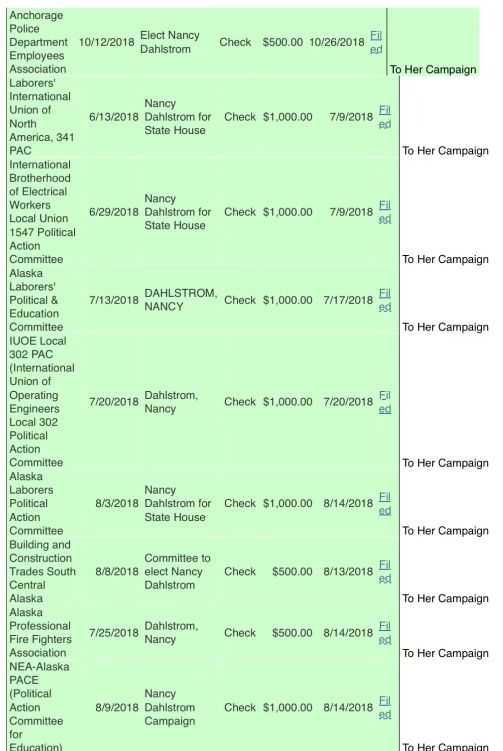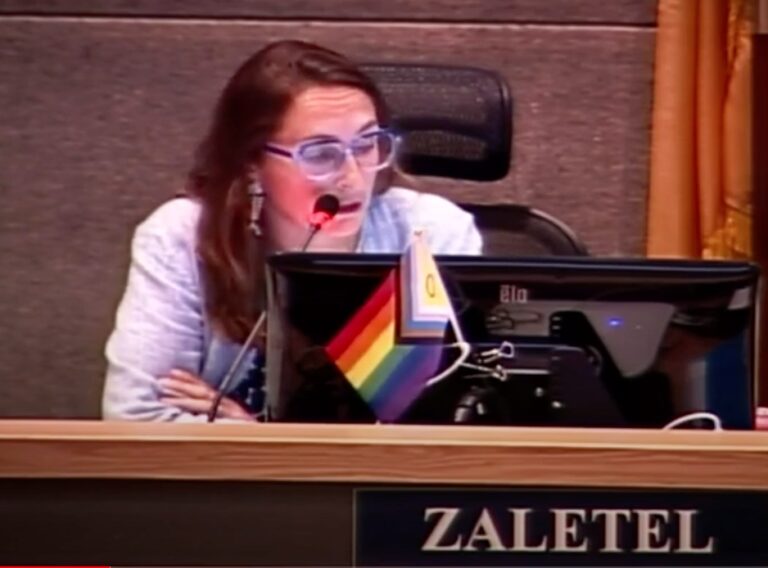By PAUL SPERRY | REALCLEARINVESTIGATIONS
Just before Donald Trump and Hillary Clinton faced off in their second presidential debate, then-National Intelligence Director James Clapper met in the White House with a small group of advisers to President Obama to hatch a plan to put out a first-of-its-kind intelligence report warning the voting public that “the Russian government” was interfering in the election by allegedly breaching the Clinton campaign’s email system.
On Oct. 7, 2016 – just two days before the presidential debate between Trump and Clinton – Clapper issued the unprecedented intelligence advisory with Obama’s personal blessing. It seemed to lend credence to what the Clinton camp was telling the media — that Trump was working with Russian President Vladimir Putin through a secret back channel to steal the election. Sure enough, the Democratic nominee pounced on it to smear Trump at the debate.
And that wouldn’t be the only historically consequential maneuver for Clapper, whose role in skewing presidential campaigns might deserve a special place in the annals of nefarious election meddling – by, in this case, a domestic, not foreign, intelligence service.
In 2020, he was the lead signatory on the “intelligence” statement that discredited the New York Post’s October bombshell exposing emails from Hunter Biden’s laptop, which documented how Hunter’s corrupt Burisma paymasters had met with Joe Biden when he was vice president. It was released Oct. 19, just three days before Trump and Biden debated each other in Nashville. Fifty other U.S. “Intelligence Community” officials and experts signed the seven-page document, which claimed “the arrival on the U.S. political scene of emails purportedly belonging to Vice President Biden’s son Hunter, much of it related to his time serving on the board of the Ukrainian gas company Burisma, has all the classic earmarks of a Russian information operation.”
In hindsight, Clapper’s well-timed pseudo-intelligence in 2016 and 2020 helped Clinton and Biden make the case against Trump as a potentially Kremlin-compromised figure, charges that crippled his presidency and later arguably denied him reelection.
The phony laptop letter actually helped Biden seal his narrow victory since many of his voters in the close election told pollsters they would have had second thoughts about backing him had they known of the damning materials contradicting his denials he knew anything about his son’s shady foreign dealings.
A post-election survey by The Polling Company, for one, found that thanks to the discrediting and suppression of the laptop story, 45% of Biden voters in swing states said they were “unaware of the financial scandal enveloping Biden and his son” and that full awareness of the Hunter Biden laptop scandal would have led more than 9% of these Biden voters to abandon their vote for him – thereby flipping all six of the swing states he won over to Trump and giving Trump the victory.
In effect, Joe Biden was elected president because millions of voters were steered away by Clapper and his intelligence colleagues from learning about the damning contents on Hunter Biden’s laptop.
In 2016, Clapper appeared to use his authority as Obama’s chief of intelligence to try to trip up Trump on behalf of Clinton.
But not everyone in the administration was on board with releasing his official statement about supposed Kremlin meddling.
Then-FBI Director James Comey had also met in the Situation Room in early October to discuss the plan. But Comey balked at accusing “Russia’s senior-most officials” of authorizing the “alleged hack” of the Clinton campaign and trying “to interfere in the U.S. election process,” as the two-page document claimed. Conspicuously, the FBI did not sign on to the intelligence.
Still, Clapper implied in his statement that this was the finding of the entire “U.S. Intelligence Community” and that it was “confident the Russian Government directed the recent compromises of emails.” Aside from Clapper’s Office of the Director of National Intelligence, the only other agency that attached its name to the assessment was the Department of Homeland Security. Also remarkable was the paucity of underlying evidence. The joint ODNI-DHS statement based its conclusion primarily on a report by a cybersecurity contractor hired by the Clinton campaign’s law firm, who later walked back his finding in a sworn congressional deposition, allowing: “We did not have concrete evidence [Russian agents stole campaign emails].”
At best, Clapper’s finding was shoddy tradecraft. At worst, it was manufactured, or simply “dreamed up,” as one former FBI counterintelligence official described it to RealClearInvestigations.
Either way, it came at a highly opportune time for Clinton. The Democratic nominee seized on the intelligence report during her debate with Trump in St. Louis on Oct. 9 to tarnish her Republican opponent as some kind of Russian agent.
“You know, let’s talk about what’s really going on here, because our intelligence community just came out and said in the last few days that the Kremlin – meaning Putin and the Russian government – are directing the attacks, the hacking on American accounts to influence our election,” Clinton asserted, citing Clapper’s warning. “We have never in the history of our country been in a situation where an adversary, a foreign power, is working so hard to influence the outcome of the election.”
“And believe me, they’re not doing it to get me elected,” she continued. “They’re doing it to try to influence the election for Donald Trump.”
“Now, maybe because he has praised Putin, maybe because he says he agrees with a lot of what Putin wants to do, maybe because he wants to do business in Moscow, I don’t know the reasons. But we deserve answers,” Clinton went on, clearly reciting a prepared talking point. “And we should demand that Donald release all of his tax returns so that people can see what are the entanglements and the financial relationships that he has with the Russians and other foreign powers.”
Some former U.S. intelligence officials say the Oct. 7 intelligence assessment appears to have been cooked up for the benefit of Clinton.
“There was no evidence to support it,” said retired U.S. Army Col. Derek Harvey, who investigated the origins of the assessment for the House Intelligence Committee. “It was a political diversion to help Clinton.”
He pointed out that the specious sourcing behind the intelligence violated Clapper’s own 2015 Intelligence Community directive outlining analytical standards for such assessments. What’s more, his directive prohibited any political bias in intelligence reporting, warning that assessments must be “independent of political consideration.”
“Analytic assessments must not be distorted by, nor shaped for, advocacy of a particular audience, agenda or policy viewpoint,” according to the six-page document, which was signed by Clapper himself.
Former FBI Assistant Director Chris Swecker said Clapper’s Oct. 7 assessment is another example of the many covert ops the Intelligence Community ran against Trump to try to keep him from power or to minimize his effectiveness while in office. By pre-cooking the conclusion about the Russian government targeting Clinton, he said, Clapper abused the U.S. government’s awesome intelligence powers to intervene in a U.S. election.
“In hindsight, it is now clear that the leaders of our intelligence agencies directed their immense powers towards all things Trump,” he said in an RCI interview.
Swecker added that Clapper, now 83, was easily manipulated by Obama and then-CIA Director John Brennan, even though Clapper oversaw the CIA. “James Clapper was the Barney Fife of the Intelligence Community,” he said.
The CIA and other American intelligence agencies are prohibited from getting involved in domestic affairs, Swecker noted, and certainly not American elections.
Attempts to seek comment from Clapper, now retired, were unsuccessful. But in his 2018 memoir, “Facts and Fears,” Clapper revealed that he and then-DHS Secretary Jeh Johnson, another Obama appointee, “agonized over the precise wording” in the Oct. 7 intelligence release, ostensibly because the linkages to the Kremlin were gauzy at best.
“We didn’t see any hard evidence of political collusion between the Trump campaign and the Russian government,” Clapper admitted on page 349, “but as I said at the time, my dashboard warning lights were all lit.”
He also suggested he was looking out for Clinton – whom his boss, President Obama, had publicly endorsed and was actively campaigning for at the time.
“Both the Russians and the Trump campaign were, in parallel, pushing conspiracy theories against Secretary Clinton,” Clapper complained, namely that “she was corrupt.”
Added the former intel chief: “Jeh and I felt strongly that we should inform the electorate,” and “President Obama assented.” In doing so, Clapper confessed they “pushed the boundaries” of what they could say about the purported “Russian activities.” As much as they juiced the intel, though, they agreed to stop short of blaming Putin directly.
While Clapper, in his book, mentioned the presidential debate that took place two days later, he did so only in passing and failed to note the key fact that Clinton cited his ginned-up intelligence during the televised event, almost on cue.
The Clinton campaign’s foreign policy adviser later gloated about the Clapper statement, showing how important it was to the campaign.
“The fact is that the entire Intelligence Community stood behind a statement in October that the Russian campaign had hacked the DNC and released their emails,” Jake Sullivan testified in a closed-door December 2017 interview with the House Intelligence Committee. “We feared that we were under attack, not just by the Russians, but by a coordinated [sic] with the Trump campaign as well.”
Sullivan was mistaken, of course. The entire Intelligence Community did not stand behind the statement, which was backed by no real evidence. At the time, according to internal documents, the FBI called the notion that the Russian government was behind the alleged hack “speculation.” And nothing the Russians may have done was coordinated with the Trump campaign, as multiple investigations have concluded.
The ‘Laptop Op’
Having been nearly charged with perjury in 2013 for lying to Congress about intelligence gathering before apologizing, Clapper appeared to politicize intelligence ahead of the 2020 presidential debate as well.
In an Oct. 19, 2020, formal statement, Obama’s and Biden’s old intelligence czar falsely implied damning emails found on Hunter Biden’s abandoned laptop were Russian disinformation. The “intelligence” came just in time for Biden, who would be squaring off with Trump in three days, just like it did for Clinton in October 2016.
“Clapper didn’t know the Russians were involved. He was just spitballing. His pre-debate guesswork was similar to his pre-debate so-called intelligence on Russia in 2016,” said the former senior FBI counterintelligence official, who spoke on the condition of anonymity.
Although the statement declared the Hunter Biden laptop “had all the classic earmarks of a Russian information operation,” it provided no actual evidence of Russian involvement. Clapper and his colleagues asserted that they strongly suspected “the Russian government played a significant role in the case.” Later in the statement, they went further to state “our view” shared by the Intelligence Community — not merely a suspicion anymore — “that the Russians are involved in the Hunter Biden email issue.”
“There is incentive for Moscow to pull out the stops to do anything possible to help Trump win and-or to weaken Biden should he win,” they speculated. “A ‘laptop op’ fits the bill, as the publication of the emails are clearly designed to discredit Biden.”
But Clapper was dead wrong. There was no Russian “op.” And the laptop and its contents — including the damning emails published by the Post — were 100% real and authentic, as Special Counsel David Weiss confirmed during the recent trial of Hunter Biden on three felony gun charges, for which he was convicted earlier this month. The Russian government had nothing to do with any of it.
In retrospect, many political analysts agree Clapper’s intel statement was designed not to inform the electorate but to mislead it. But more significantly, the timing of its release suggests it was meant to help Biden in the next presidential debate, which was scheduled just three days later in Nashville.
During that final presidential debate, held on Oct. 22, 2020, Biden dismissed concerns about his son’s laptop emails and family foreign influence-peddling as part of a “Russian plant” after Trump lit into him about the laptop story. “Joe, they’re calling you a corrupt politician,” Trump said. “Take a look at the laptop from Hell.” Leaning on Clapper’s intel statement, Biden flatly denied knowing anything about Hunter’s foreign business dealings.
“Look, there are 50 former national intelligence folks who said that what he’s accusing me of is a Russian plant,” Biden shot back. “They have said this is, has all the characteristics — four, five former heads of the CIA, both parties, say what he’s saying is a bunch of garbage. Nobody believes it except him and his good friend Rudy Giuliani.”
The intel provided a much-needed lifeline for the former vice president.
It were as if Clapper had teed up the perfect talking point for Biden. As it turns out, Biden campaign officials had worked with Clapper’s team prior to the release of the intel statement accusing Putin of planting the laptop story.
In a House deposition, former deputy CIA Director Mike Morell, a Clapper confidant and one of the 51 signatories of the letter, testified that around Oct. 17, top Biden campaign aide Antony Blinken, now Biden’s Secretary of State, reached out to him to discuss the Hunter Biden laptop story.
Morell revealed that one of the goals in releasing the letter two days later “was to help then-Vice President Biden in the debate,” according to an April 20, 2023, letter House investigators sent to Blinken. The day after speaking with the Biden campaign, Morell blasted out an email to former intelligence officials to recruit them to sign the Oct. 19 intel letter. “We want to give the VP a talking point to use in response” to Trump in the event he attacks Biden over the laptop revelations during the upcoming debate, Morell wrote his colleagues. After the Oct. 22 debate, Morell testified that Biden campaign chairman Steve Ricchetti called him to thank him “for putting the statement out.” Morell said former CIA chief of staff Jeremy Bash was also involved in the coordination effort. Bash happens to be the ex-husband of Dana Bash, who will be one of the CNN moderators questioning Trump and Biden at Thursday night’s debate in Atlanta.
In effect, the Intelligence Community conspired with the Biden campaign to deceive the electorate by creating a false talking point for Biden in the presidential debate, which some government watchdogs say constituted an unreported campaign contribution and a potential violation of federal campaign finance laws.
On the same day that Clapper released the statement, then-Politico reporter Natasha Bertrand hyped it in a story with the conclusive headline: “Hunter Biden story is Russian disinfo, dozens of former intel officials say.” During the earlier frenzied coverage of Russiagate, Bertrand, who now works for CNN, acted as a go-to reporter for leaks from intelligence officials about Trump. She quoted one signatory to the letter as being confident that “once again the Russians are interfering” in U.S. elections. About 15 minutes after Politico published its story, Jen Psaki tweeted a link to the Politico article. Psaki was named Biden’s press secretary the next month. The Biden campaign repeatedly cited Clapper’s statement to dismiss the allegations against Hunter and Joe Biden. Clapper played his part by jumping on CNN to claim the laptop was “textbook Soviet tradecraft.”
It’s clear Clapper was rooting for Biden to win. Three days before Clapper released his all-too-convenient intelligence letter, he had donated $1,000 to Biden’s campaign, according to Federal Election Commission records. He had given another $250 to Biden For President the previous October. In the current election cycle, records show Clapper has contributed at least $300 so far to Biden.
RealClearInvestigations reached out to Clapper for comment but did not hear back. However, in a previous statement, he was unapologetic. “I stand by the statement made at the time,” he told the New York Post. “I think sounding such a cautionary note at the time was appropriate.”
Clapper and Tapper
Clapper’s history of intrigue gainst Trump includes leaking damaging classified information about him to the media.
CNN anchor Jake Tapper thought he had the scoop of his career when, on Jan. 10, 2017, he reported that President-elect Trump had been briefed by the FBI about “classified documents” containing information from a “credible” intelligence source that the Russians had “compromising” dirt on him. Citing unnamed “U.S. officials,” the report, co-bylined with Carl Bernstein of Watergate fame, also falsely claimed that the Trump campaign and the Russian government had “exchange[d] information” throughout the election and that these allegations had been verified. Tapper failed to note that the supposedly “classified” information came from political opposition research funded by the Hillary Clinton campaign, otherwise known as the Steele dossier, compiled by former British intelligence officer Christopher Steele.
As flawed as the story was, it triggered a feeding frenzy in the national media, which up to that point backed off from covering the wild and unsubstantiated allegations contained in the Steele dossier. But after they learned from Tapper – by way of Clapper – that the U.S. Intelligence Community itself had taken a keen interest in the dossier and appeared to be taking it seriously, they reported the allegations against Trump nonstop for several years as if the dossier reports were the Pentagon Papers.
When congressional investigators first asked Clapper about the CNN leak in a July 2017 deposition, Clapper “flatly denied ‘discuss[ing] the dossier [compiled by Steele] or any other intelligence related to Russia hacking of the 2016 election with journalists,’” according to a report issued by the House Intelligence Committee. But Clapper changed his story upon further questioning. “Clapper subsequently acknowledged discussing the ‘dossier with CNN journalist Jake Tapper.’” The report added that Clapper secretly spoke with Tapper in early January 2017 and that on Jan. 10, CNN published Tapper’s story about the dossier allegations, for which he won the Merriman Smith Award for broadcast journalism in 2018.
The next day, Clapper issued a statement describing a call with Trump in which Clapper “expressed my profound dismay at the leaks that have been appearing in the press” and stressed that “I do not believe the leaks came from within the IC,” or Intelligence Community.
Clapper, who was later hired by CNN as an official “national security analyst,” had blatantly lied not only to the incoming president but also to the public. Again. And in effect, he had used Tapper, who’s not only failed to correct the record at CNN, but finds himself in the position to grill Trump on Thursday night as co-moderator with Bash of the first 2024 presidential debate in Atlanta.
Paul Sperry is an investigative reporter for RealClearInvestigations. He is also a longtime media fellow at Stanford’s Hoover Institution. Sperry was previously the Washington bureau chief for Investor’s Business Daily, and his work has appeared in the New York Post, Wall Street Journal, New York Times, and Houston Chronicle, among other major publications.
This article was originally published by RealClearInvestigations and made available via RealClearWire.












